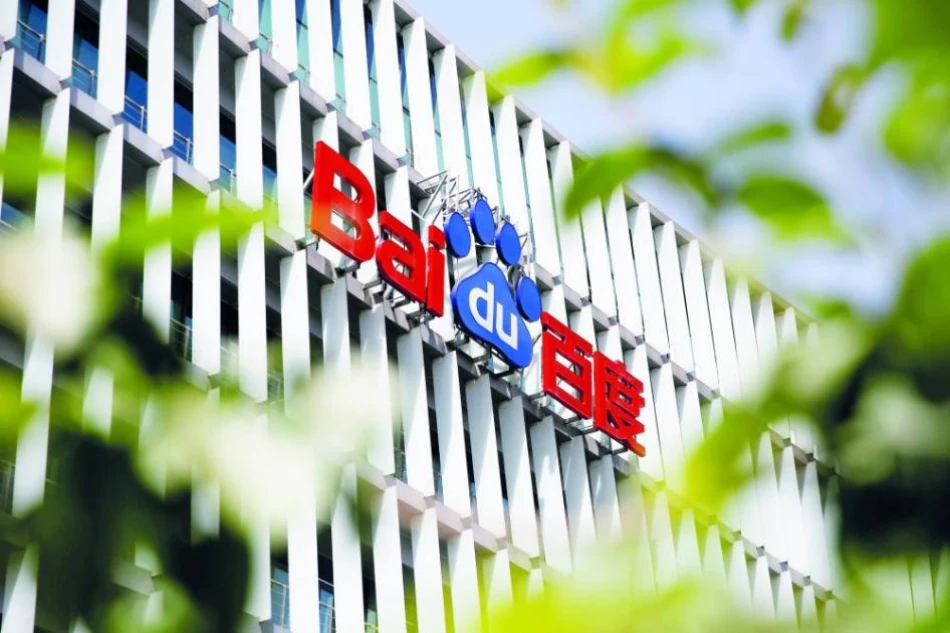
Chinese tech giant Baidu launches autonomous taxis on American ride-sharing app Lyft.
Chinese Tech Giant Baidu Targets European Ride-Hailing Market with Autonomous Fleet Partnership
Chinese internet behemoth Baidu is positioning itself as a major player in Europe's autonomous vehicle market through a strategic partnership with American ride-hailing company Lyft. The collaboration will bring Baidu's self-driving taxi service to Germany and the UK by 2026, marking a significant expansion of Chinese autonomous driving technology into Western markets and intensifying global competition in the robotaxi sector.
The Strategic Alliance Takes Shape
The partnership between Baidu and Lyft represents more than just a business deal—it's a calculated move to establish Chinese autonomous driving dominance beyond Asia. Under the agreement, Baidu's Apollo Go service will deploy thousands of self-driving vehicles across European cities through Lyft's platform, pending regulatory approval.
This European expansion follows Baidu's similar deal with Uber announced last month, covering Asia and the Middle East markets. The dual-platform strategy suggests Baidu is hedging its bets while maximizing market penetration across different regions and consumer bases.
Regulatory Hurdles and Timeline Uncertainties
While the companies target 2026 for launch, the timeline hinges entirely on securing regulatory approval from European authorities. Neither company has disclosed which additional European countries beyond Germany and the UK will host the service, nor provided estimates for the regulatory approval process duration.
This regulatory uncertainty reflects the complex landscape autonomous vehicle companies face when expanding internationally. European regulators have historically taken cautious approaches to new transportation technologies, prioritizing safety over speed-to-market.
China's Autonomous Driving Boom Goes Global
Baidu's international expansion comes as Chinese companies dominate their domestic autonomous vehicle market. The company already operates over 500 self-driving taxis in designated areas of Wuhan, central China, while Shanghai's Pudong financial district recently issued multiple permits for autonomous taxi operations across several companies.
Chinese technology and automotive companies have invested billions of dollars in autonomous driving development in recent years, transforming the sector into a key battleground in the country's highly competitive automotive market. This domestic success now provides the foundation for global expansion.
Competitive Landscape Intensifies
Baidu isn't alone in its international ambitions. Competitor WeRide operates in Gulf countries and launched a small pilot project in Switzerland in January. Meanwhile, Pony.ai announced an agreement in May to deploy autonomous taxis on Uber's platform in a "major Middle Eastern market" this year.
This wave of Chinese autonomous vehicle companies expanding internationally creates new competitive dynamics for established Western players like Waymo and Cruise, while potentially accelerating global adoption of self-driving technology.
Market Implications and Strategic Positioning
For investors and industry observers, Baidu's European push signals several important trends. First, it demonstrates Chinese confidence in their autonomous driving technology's readiness for international markets with different regulatory frameworks and driving conditions.
Second, the partnership model with established ride-hailing platforms like Lyft and Uber provides Chinese companies with instant market access and operational infrastructure, avoiding the costly process of building consumer-facing platforms from scratch.
Lyft's European Gambit
For Lyft, the Baidu partnership supports its own international expansion strategy. The San Francisco-based company's April acquisition of German taxi-booking app Freenow marked its most significant expansion outside North America. Partnering with Baidu for autonomous vehicles could give Lyft a technological edge in European markets where it lacks the scale and resources of larger competitors.
The combination of Lyft's platform expertise and Baidu's autonomous driving technology creates a potentially formidable challenge to European ride-hailing incumbents and could accelerate the transition to autonomous fleets across the continent.
The Road Ahead
Success in European markets will depend heavily on regulatory navigation and public acceptance. European consumers and regulators have shown varying degrees of openness to autonomous vehicles, with safety concerns and job displacement fears creating potential obstacles.
However, if Baidu and Lyft can successfully launch in Germany and the UK—two of Europe's largest markets—it could establish a template for broader European expansion and potentially influence regulatory frameworks across the continent. The partnership represents a significant test case for Chinese autonomous driving technology's global viability and could reshape the competitive landscape in one of the world's most important automotive markets.
Most Viewed News

 Omar Rahman
Omar Rahman






